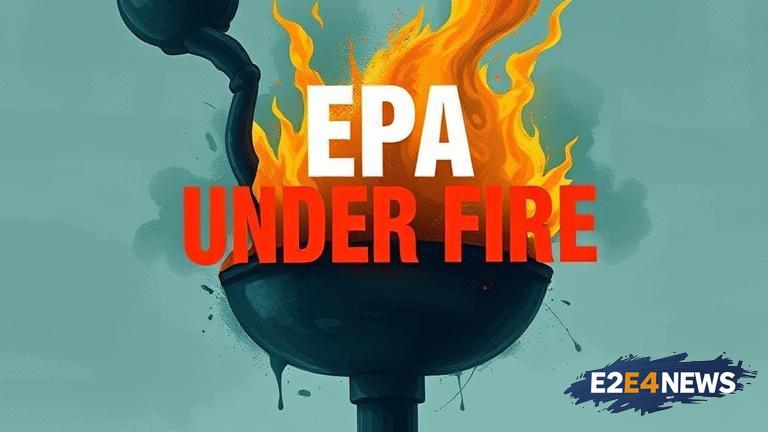The Environmental Protection Agency (EPA) has come under scrutiny for its perceived attack on climate science, leaving many to wonder about the motivations behind such actions. Climate change, a pressing global issue, has been extensively studied and documented by scientists worldwide. The overwhelming consensus is that human activities, particularly the emission of greenhouse gases, are significantly contributing to the warming of the planet. This understanding is based on decades of research and data collection, making it a cornerstone of environmental policy. However, the EPA’s recent moves have raised concerns that the agency is disregarding this scientific consensus. By questioning the validity of climate science, the EPA’s actions could have far-reaching consequences, not only for environmental policies but also for public health and the economy. The implications of such a stance are multifaceted, affecting everything from energy production and consumption to international relations and global cooperation on climate issues. Critics argue that undermining climate science could lead to a lack of urgency in addressing the issue, potentially resulting in more severe climate-related disasters and health problems. Furthermore, such a stance could isolate the United States on the global stage, as most countries are moving forward with climate action plans and agreements. The economic impacts could also be significant, as investments in renewable energy and green technologies are seen as crucial for future economic growth and competitiveness. On the other hand, proponents of the EPA’s actions argue that the agency is seeking to ensure that policies are based on the best available science and that regulatory decisions are not overly burdensome to industries. They suggest that a more balanced approach is needed, one that considers both environmental protection and economic growth. Despite these arguments, the scientific community remains largely united in its view that climate change is real, is largely caused by human activities, and requires immediate attention. The role of the EPA in protecting the environment and public health is critical, and its stance on climate science will be closely watched by both domestic and international observers. As the debate continues, it is essential to consider the facts and the potential consequences of the EPA’s actions. The future of climate policy, both in the United States and globally, hangs in the balance. The need for accurate, science-based information has never been more pressing. In conclusion, the EPA’s perceived attack on climate science is a complex issue with significant implications. It underscores the importance of science in policy-making and the need for a balanced approach that considers both environmental and economic factors. As the world moves forward in addressing the challenges of climate change, the stance of the EPA will be a critical factor in determining the success of these efforts. The coming months and years will be pivotal in shaping the future of climate policy, and the international community will be watching closely. The health of the planet and the well-being of future generations depend on the decisions made today. Therefore, it is crucial that these decisions are informed by the best available science and a commitment to protecting the environment. The path forward must be guided by a thorough understanding of the issues at hand and a resolve to address them effectively. This includes investing in renewable energy, enhancing energy efficiency, and promoting sustainable practices across all sectors. By working together and leveraging scientific knowledge, it is possible to mitigate the effects of climate change and create a more sustainable future. The challenge is significant, but the potential rewards are substantial, making the effort well worth undertaking. In the end, the outcome will depend on the choices made by governments, businesses, and individuals around the world. The future of the planet is at stake, and it is imperative that we act with the urgency and wisdom that this challenge demands.
